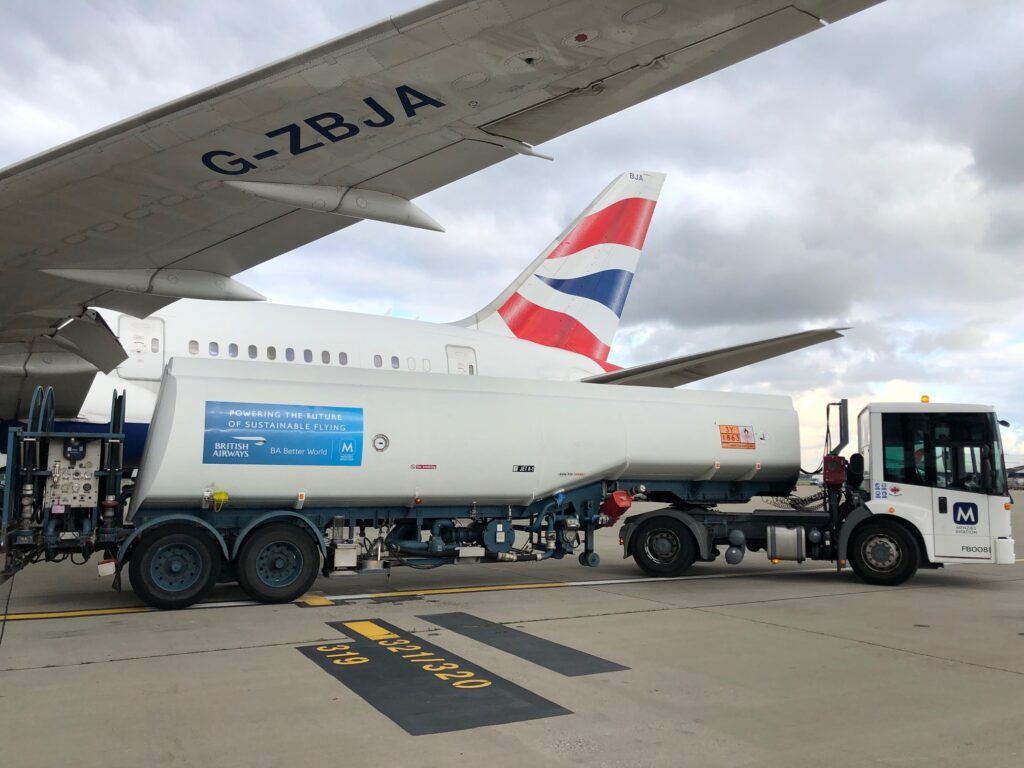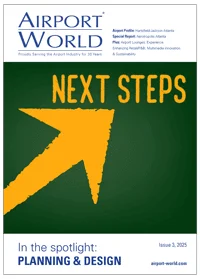Aviation sector calls for greater support for sustainable aviation fuels
Share

The European aviation sector today issued an urgent call for accelerated policy support to unlock the full decarbonisation potential of Sustainable Aviation Fuels (SAF).
The joint call, made by the DESTINATION 2050 partners together with fuel suppliers and cargo and express delivery operators, highlights the pressing challenges of affordable SAF deployment across Europe.
Chief amongst them is that the current SAF market remains nascent — HEFA‑based fuels (Hydro-processed Esters and Fatty Acids) are the only commercially available option today and face a substantial cost gap compared to conventional kerosene.
At the same time, next‑generation SAF pathways — such as e‑SAF and advanced biofuels — continue to struggle with access to investment, in particular in reaching Final Investment Decisions (FID).
In response, the industry has laid out a 10‑point action plan, designed to address early‑mover disadvantages and catalyse the scale‑up of SAF production and deployment.

The plan lays out the key regulatory and financial measures needed to de‑risk investment, bridge the significant cost gap and incentivise innovation in fuel technologies critical to decarbonising air transport.
This call to action was handed over today to Apostolos Tzitzikostas, the European Commissioner for Sustainable Transport and Tourism, during the Implementation Dialogue he convened to specifically address the ramp up of renewable and low‑carbon transport fuel production.
The initiative comes at a pivotal moment, as the European Commission prepares to unveil its Sustainable Transport Investment Plan in Q3 2025 — which is expected to finally provide the support needed to effectively accelerate and deploy SAF and related infrastructure.
Participating in the Implementation Dialogue, ACI EUROPE’ president and CEO of Fraport, Stefan Schulte, commented: “By setting SAF mandates, ReFuelEU Aviation provided the ‘sticks’ needed for legal certainty, but failed to provide the ‘carrots’ — namely, the financial incentives and flexibility mechanisms required to ensure SAF is produced at scale and at competitive prices.
“Today, the industry has come together to present a 10‑point plan to address this imbalance. It is now crucial that the Commission moves swiftly to create the supportive policy environment needed to develop Europe’s SAF market. Only then can we remain globally competitive and achieve our shared goal of net zero emissions by 2050.”

Montserrat Barriga, director general of the European Regions Airline Association (ERA), said: “Sustainable aviation fuels are a critical part of the aviation journey to net zero by 2050, yet they remain unevenly available across the network.
“Asymmetric access to SAF risks distorting public perception and reputational fairness between regions and operators. To build a truly competitive, inclusive and efficient SAF market, we need urgent policy action to make it available, remove cost barriers, ensure price transparency and introduce effective monitoring mechanisms.
“This is essential to scale up production, unlock investment and safeguard air connectivity for all parts of Europe.”
DESTINATION 2050 is an industry alliance committed to climate neutral European aviation in line with the EU climate goals and the Paris Agreement.







